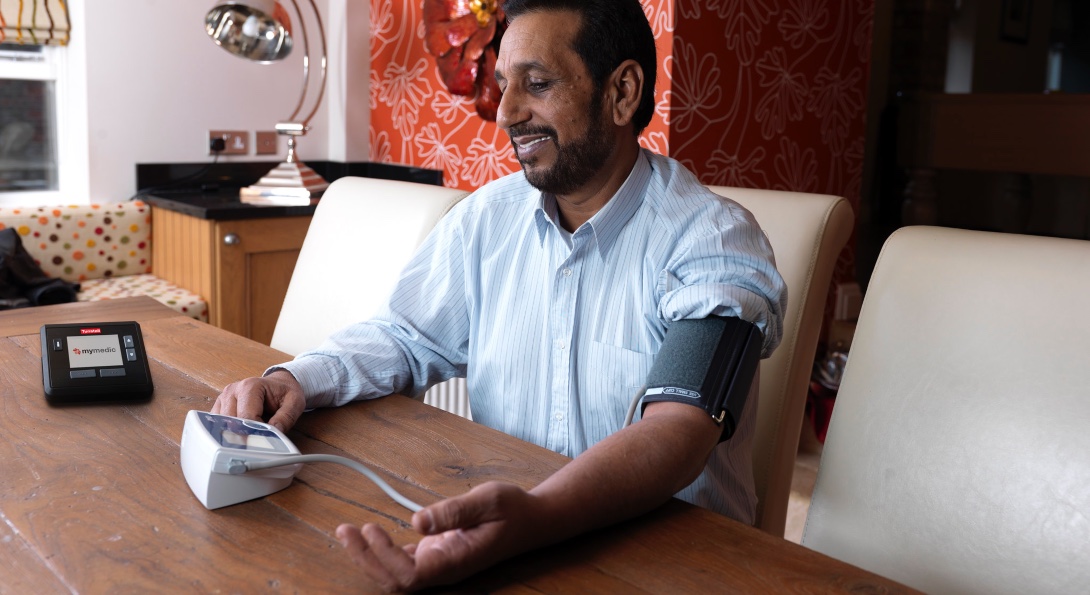Policy recommendations for aging rural populations in the pandemic

Read the report
Press release text
Improving quality of life for the aging rural population requires a focus on digital literacy, integrated services and social connection, says a new policy brief released by Rural Health Summit organizers, including Southern Illinois University (SIU) Medicine Department of Population Science and Policy, SIU Paul Simon Public Policy Institute, the UIC School of Public Health and the SIU Medicine Center for Rural Health and Social Service Development.
SPH’s Devangna Kapadia, assistant director of the Policy, Practice and Prevention Research Center, is a collaborator on this policy brief.
The Rural Health Summit group recommends the following actions to improve health and quality of life for older rural residents:
- Utilize technology to enhance the capacity and digital literacy of rural communities to better treat chronic conditions through telehealth and telemonitoring.
- Invest research and program funds in designing rural-specific models for the aging population that align sectors to provide integrated, personalized and comprehensive services.
- Address social isolation among the rural elderly populations by implementing social isolation screenings and community-based programs.
The Rural Health Summit will host a webinar on April 22 to discuss the issues faced by aging rural residents. This will be the first in a series of upcoming webinars on rural health.
“These policy recommendations aim to address both the preexisting conditions and acute challenges caused by COVID-19 for our aging rural population,” said Dr. Sameer Vohra, Chair, SIU Medicine Department of Population Science and Policy. “Conversations with statewide experts uncovered a great need but also a huge capacity and drive for innovation in our rural communities. We hope leaders from across the state will collaborate to help close health disparities faced by older rural residents.”
The policy recommendations are the result of discussions from rural health stakeholders, community leaders, legislators, physicians and experts from organizations from throughout Illinois and build on the Rural Health Summit’s initial report, “Building a Healthier Rural Illinois: Understanding and Addressing the Challenges of COVID-19.”
The report notes that older rural residents have long struggled with healthcare access, lack of integrated social services and social isolation. Each of these issues has been exacerbated by the pandemic’s health, social and economic impact. Limited and disconnected social services are compounded by the fact that accessing quality and consistent transportation is also a regular challenge for rural communities. Social isolation and loneliness is another complicated challenge for rural older adults and may lead to serious adverse health outcomes for this population. These factors have all played a role in the outsized impact of COVID-19 on populations age 65 and older in rural areas.
Recommendations for expanded telehealth access will require inclusive digital literacy efforts, building skills and familiarity with technology. A more holistic model of senior care calls for building age-friendly systems that bridge divides and focus on health, social services and community. Improving social capital in rural communities will require government, media, religious organizations, schools, businesses, philanthropic groups and senior advocacy groups partnering together to develop programs focused on social engagement.
About the Rural Health Summit
The Rural Health Summit will release monthly topic-specific policy briefs and host corresponding webinars through January 2022 on topics of mental health, public health systems, nutrition and fitness, children’s growth and development, workforce development, opioids, health and housing and economic development. Additionally, the Department of Population Science and Policy is presenting the 21st Annual SIH/SIU Health Policy Institute – The COVID-19 Pandemic and Its Impact of Health Policy: A Renewed Focus on Healthy and Equitable Communities on June 8, 2021. Register for that virtual event here.